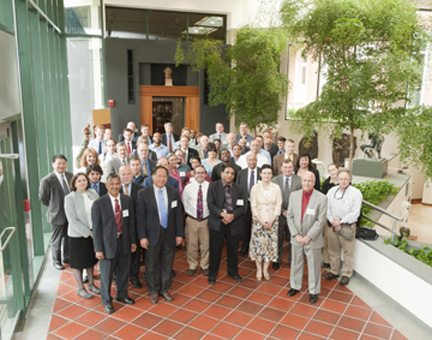CECD Hosts Second Research Symposium on Traumatic Brain Injury
College Park, MD, May 19, 2011
Traumatic brain injury (TBI) has become the signature injury of the wars in Iraq and Afghanistan. It is estimated that greater than 360, 000 veterans of these wars have experienced brain injury. The majority of these injuries are closed-head injuries sustained due to the detonation of improvised explosive devices. This paradigm represents a significant departure from the automotive and sports causes of TBI that have been the subject of the majority of previous research efforts. Neither the response of the brain to blast nor the physiological consequences of this response are currently understood. “Without knowing how the blast injury occurs, it will be difficult to develop timely, reliable and specific mitigation, diagnosis and treatment for our warfighters. This multifaceted task is extremely challenging and its successful solution is only possible through highly-collaborative multi-organizational research efforts, “ says Robert Kaczmarek, recently the Research Department Head at the Naval Surface Warfare Center, and currently a Visiting Research Scholar at Center for Energetic Concepts Development (CECD), University of Maryland.
University of Maryland CECD researchers in collaboration with researchers at the University of Maryland School of Medicine, the Naval Surface Warfare Center – Indian Head Division, and the Energetics Technology Center are looking for better ways to prevent, identify, and treat combat causes of traumatic brain injury.
On May 19, 2011, in the spirit of collaboration, the CECD sponsored the Second Research Symposium on Traumatic Brain Injury at Maryland bringing together a community from a dozen academic, government, and industry organizations. Presentations and discussions ranged from clinical studies, field-useable equipment for rapid diagnosis, advanced modeling and simulation, imaging methods, and brain tissue characterization. For the symposium agenda click here.
The purpose of the symposium was to bring together experts in all aspects of blast-related TBI research to foster information sharing and multi-disciplinary, multi-organizational collaboration. For more information on the TBI research efforts at the Center for Energetic Concepts Development, please contact Robert Kaczmarek at robert.kaczmarek@navy.mil.

Symposium Participants

